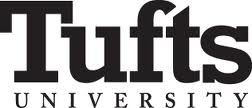 The last post of "Chicken or Egg" produced a fair number of responses to the question often posed in startups of...
The last post of "Chicken or Egg" produced a fair number of responses to the question often posed in startups of...
- Do I focus on hiring the best salesperson first?
- Or, should I first hire the Head of Sales and have that person do the hiring and define the org structure?
My attitude is to go down both tracks in parallel at full bore and discover what the best choice might be. If the response is to find the perfect salesperson, hire her or him first,and then focus on hiring the manager, defined as the Player Coach. On the other hand, if your recruiting process identifies the perfect Player Coach first, hire that person first...as long as they understand that in addition to figuring out structure, compensation, channels and recruiting, they also need to put points on the board. Hence, the term, "Player/Coach".
A number of reader comments provided much better guidance:
- Hire a top sales guy one step away from being a manager. Kill two birds with one stone, and get sales immediately and groom your manager at the same time.
- I'd hire a hands-on sales mgr. why? Key is to develop a repeatable sales process. Best way to do that is by getting w/ prospects, testing value propositions, evolving what works/doesn't work; getting clients and understanding the sales implementation model. Then that sales mgr will know what to look for in sales hires and can train them on: Solutions for target market, and repeatable sales process. That person would also be in a position to assist in direction for the website and landing pages.
- Based on my past startup experience, definitely hire the salesperson first. If he/she does not ultimately fit with the boss, so be it. You need points on the board, and by that time the company will likely have other producing salespeople on the payroll to absorb any hit.
- I concur with your strategy of pursuing both sales manager and sales rep. I'd give the rep the heads up that you're looking for a sales manager as well. Maybe he or she won't be offended if they know of someone for whom they would like to work, is available.
-
"Get numbers first." This last comment comes from the Sales Legend, Jack Falvey, the noted author, speaker...and all-around great guy and friend. Check him out at his website "MakingTheNumbers.Com", and sign up for his newsletters and blog posts. Jack is nothing but totally focused and very direct.
I appreciate the more than 25 responses that we received. All very helpful as all of us now work toward the half way point in this year.
Which brings me to a strong recommendation to take a "time out" during July.
 Take the team out of the office for at least a long day. My preference would be a dinner the night before and then a full day the next, but your own people logistics, budgets and objectives will define what you need to do. An alternative would be a relaxing, fun barbecue at the end of what will be a long planning day.
Take the team out of the office for at least a long day. My preference would be a dinner the night before and then a full day the next, but your own people logistics, budgets and objectives will define what you need to do. An alternative would be a relaxing, fun barbecue at the end of what will be a long planning day.- Review the data from the first six months, but focus more on what "best practices" worked really well and what other tactical plans that you had outlined back in December and January failed and why.
- The primary focus of this offsite is tactical battle planning for the balance of the year. Tactics, hiring plans, key account planning, channel development, organization structure, communication, training, urgency and everything else that could impact bookings over the six months from July through December
Since this post is all about Sales...
Another sales strategy that you might want to discuss during your July meeting and turn into tactical planning is that of presenting "Business Cases" and not selling products, and in many cases, not even selling solutions. Solution Selling has been around now for 15 years, and, in some cases, it's so overdone tht the knowledgeable prospect will tell the salesperson to stop the process.
We were introduced to this strategy about five years ago, and it's been proven to be very successful in complex, long sales cycle deals. The tactics include...
- Meeting initially only with "C" level executives to discuss their strategic objectives for their business while exchanging your outlook on their market that you and your company have gained through your expertise in the market and through your experience with similar businesses. This initial meeting is all about exchanging market insight and what it will take to achieve the prospect's growth objectives. This initial meeting is a business conversation and not a selling process.
- During this initial meeting, you also actively discuss the concept of Business Use Cases and the fact that you would like to provide one for their company
- During that meeting, you then ask for and gain "proactive permission" to talk with other managers in the company. Your purpose here is that you can then gather data and observations that will be used to formulate a Business Case for their company.
- This Business Case will then be presented with your findings, specific recommendations, budgets and timetables when you return to the C Level office in a few weeks following your data gathering.
That's the outline, and the success is in the details, but we've proven that in the majority of cases, it works extremely well, since it focuses totally on the customer's business objectives and not you and your products. Plus it allows you to engage in conversations and not selling points. The initial part of this process is all about focusing on...
- Corporate strategic objectives as defined by the C Level manager
- Their own corresponding objectives...and, of course, bonuses
- Business Use Cases
- Value Propositions
...and not on relationships or solution selling, per se.
 I was reminded about this strategy yesterday morning through the HBR blog that you can find at https://hbr.org/video/2919114908001/craft-a-story-to-sell-your-business-case, with a short summary below. It is not exactly on point to what I've outlined above, but it makes the case of Business Use Cases and having conversations with prospects and customers.
I was reminded about this strategy yesterday morning through the HBR blog that you can find at https://hbr.org/video/2919114908001/craft-a-story-to-sell-your-business-case, with a short summary below. It is not exactly on point to what I've outlined above, but it makes the case of Business Use Cases and having conversations with prospects and customers.
|
May 27, 2015
Turn Your Business Case into a Compelling Story
The business cases that win funding tell compelling and memorable stories. That’s the best way to capture decision makers’ imaginations and make your idea stand out. Think of your business case as a concise adventure novel, with your company as the protagonist. The narrative involves your company solving a business need or seizing an opportunity by acting on your idea. To build that story, first identify the strategic need or opportunity you want to address. Then map out how your idea supports that important strategic or organizational objective. Once you’ve done your homework, you can outline your project approach and explain how your idea will be implemented. Finally, describe the benefits your project will deliver if it’s funded. Avoid vague goals like “improve customer satisfaction,” “cut costs,” or “drive sales.” Get specific: “We’ll reduce product returns by 10%, saving $300,000.”
|
My primary points in today's blog, as you wind down the month in this super-critcal quarter, is to have you think about...
- ...taking a "mid-year time out",
- ...focusing on tactics for the next six months
- ...trying something different
Perhaps that "difference" is presenting Business Cases and not focusing on relationships or sellling your products. Perhaps, it's something else.
But, whatever it is, it's time to shake things up this July!
In the meantime... GOOD SELLING as you finish the month t;omorrow!
Have specific sales questions that you want to bounce off me or any of our other coaches, just email me, and we'll set up a time to talk.

Head Coach
Derby Management...for 25 years
-Sales & Marketing Productivity Experts
-Business & Strategy Planning Specialists
-Senior Management Coaching
Box 171322, Boston, MA 02117
617-292-7101
Jack's Cell: 617-504-4222
http://www.brainshark.com/derbymanagement/vu?pi=zEAzcyC9XzFFz0
 I'm starting to get prepared for my fall marketing course...
I'm starting to get prepared for my fall marketing course...
A syllabus along with the project outlines is sent to the students in early July with the requirement that they do research on the companies and quickly define in writing before they come to the first class during the first week of September, exactly why they should be accepted into the class to work on any of these particular projects. This is a very desired course, and currently, I have 46 students signed up among the categories of Registered, the official "Wait List" and then the longer, unofficial "Wait-Wait List"., I need to bring total attendance down to no more than 32 by the end of the first class in September, and the summer homework of reviewing the company assignments, doing research on the companies and completing reading assignments constitute the means through which I measure the motivation and commitment of students coming into the course.
The structure of the process always works, and, most importantly, very often this course becomes the most influential in the students' college experience, simply because of the fact that it introduces them to the inner workings of senior management teams who are dealing with the real life experiences of launching new products, assessing market opportunities and creating multi-faceted marketing campaigns.
Paige Dahlman, this extraordinary student from last semester, who is now a just-graduated senior and has been the Captain of the Tufts Squash Team, writes..." I can easily say that this was my most rewarding class at Tufts". Each semester I get a number of similar notes, which, I hope points a little bit to my teaching style and to the content, but, I know that the most impactful component of this course is its unique structure of directly connecting bright students to work with senior management teams who have a need to explore a new marketing or product idea.
Recently, I was awarded the School of Engineering Teacher of 2014-2015, but the award really goes to the students and to the unique structure of this class working with real companies and management.
84
We've now completed 84 projects covering a wide spectrum of markets, projects and company sizes which have ranged from Raytheon and Fidelity, to startup tech, healthcare and apparel companies, to well-established consumer companies, such as Paytronix and Stratton Resort, both of whom were looking for the unique perspectives of Millennials. One company has returned six times, four companies, four times...and so on.
And no one has been disappointed!
No Later Than June 15th, Please...
 If you're interested in applying to be part of this very rewarding project, just let me know by email NO LATER THAN JUNE 15TH, and I will send you the instructions of what is expected of both the companies and the students. At the end of the semester, the company's management teams will come to Tufts for 60 minute presentations where they will also receive all of the project material, research data and recommendations that have been prepared.
If you're interested in applying to be part of this very rewarding project, just let me know by email NO LATER THAN JUNE 15TH, and I will send you the instructions of what is expected of both the companies and the students. At the end of the semester, the company's management teams will come to Tufts for 60 minute presentations where they will also receive all of the project material, research data and recommendations that have been prepared.
This deadline of June 15th does not mean that the project details need to be completed by that time. You have until September 1st do that.
What I do need to do is to be able to send to the students in early July a syllabus along with a package of information that includes...
- A paragraph or two on the company and especially on its customer focus.
- Who are the existing customer personas?
- An outline, in as much detail as you can provide, of the assignment.
- Contact information of the project leader
It's a superbly rewarding experience...
Both for you in the added depth that you will achieve in your marketing plans, and for the students as they become introduced to the senior management from real world companies. In a number of cases, our students go on to work as interns and employees from their host companies.

